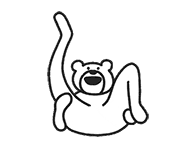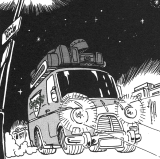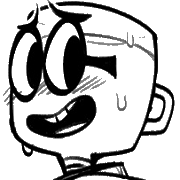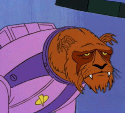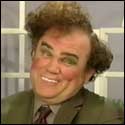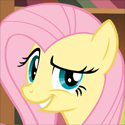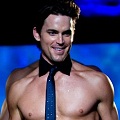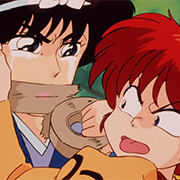|
Into Thin Air by Jon Krakauer I'm not into mountaineering or anything like that, but I was seriously engrossed in this book. I previously read Under the Banner of Heaven by the same author and really enjoyed that also. It's about the author's ascent of Everest with commercial guides for a magazine article. On the descent a storm hit and about a dozen people died. I guess it's a pretty widely known disaster, there's been about 3 movies and a handful of books and documentaries about it. Some of the details are disputed among other survivors and the families of deceased climbers. So take it with a grain of salt. The author seemed to me to be pretty open about what's disputed and his own culpability in some of the deaths throughout, though a little defensive in the afterword. Maybe I'll read The Climb by Anatoli Boukareev, one of the guides who made the ascent that day. The co-author of that book is responsible for a lot of the public accusations about dishonest portrayal of Boukareev in Krakauer's book.
|
|
|
|

|
| # ? Apr 25, 2024 09:11 |
|
Finished a couple Grant by Ron Chernow Chernow should be a pretty well known name at this point, but this was the first time I actually read a complete biography of his. Grant's biography is pretty solid. He did a great job and (rightly) pulled from Grant's own well written auto-biography to frame much of the book. It's split into 4 parts that make for some compelling themes as well as make it a little easier to go through as it's pretty lengthy. Chernow's style is very easy to read, and his does let his voice come through not infrequently. At times I thought Chernow was perhaps being too apologetic to Grant's lifelong drinking problem though I don't feel like he hid anything or tried to skew the facts, he just liked to jump in to color them. Similarly, I think he tried to paint much of the corruption and cronyism in Grant's (SPOILER!) presidential office but I again I thought he did a good job of connecting those things with a lot of the good Grant did (which has been sadly overlooked by historians until relatively recently). Overall I really liked it and in particular it worked as a good 10,000 foot view of both the Civil War and Reconstruction from the vantage point of arguably the most influential figure across those two times. Universal Harvester by John Darnielle Based on this thread I picked this up too. I really did like it, though not as much as Wolf in White Van. Darnielle still writes amazing prose and the book was a quick read. As others have said, it's sorta setup like a horror or suspense story but it's really not and it's more a portrait of individuals in a small town and the various ways they deal with isolation, grief, and few opportunities to deal or move on from loss. Thumbing through reviews I think a lot of people were expecting something very different and the story is about the "Who" and not really the "What". I would say, though, that the impact didn't always land for me like I think it was intended to. The characters felt like they were on their way to developing into really well fleshed out before he hit us with the guy punches, but they weren't quite there so the impact was muted. In the 2nd half characters get introduced very quickly and I am not sure the flow worked so well. All in all, a good book but I would strongly suggest going in as blind as you can.
|
|
|
|
Just finished Neuromancer. Kinda weird reading this book year with the amount of times it uses the phrase 'Chinese virus'
|
|
|
|
I bailed on Universal Harvester halfway through I remember it was during the characters eating dinner and I think I was suspecting it was not going to be fun anymore
|
|
|
|
nut posted:I bailed on Universal Harvester halfway through I remember it was during the characters eating dinner and I think I was suspecting it was not going to be fun anymore What's not fun about Taco John's? They've got Potato Oles!
|
|
|
|
I've just finished the first three (audio)books in the Provincetown Tales series by Radclyffe, and I don't think I've ever been as swallowed up in reading a series. It's a series of intertwined slice of life stories, predictably enough, set in Province town, and involves the ups and downs of the lives and loves of women. It somehow also manages to include some incredibly erotic scenes without coming off as even the slightest bit porny.
|
|
|
|
|
I finished reading Lonesome Dove for the first time. It's 900 pages of cowboys being neurotic about women; it was really in my wheelhouse.
|
|
|
|
Ancillary Justice by Ann Leckie Fairly standard space opera with interesting setting and solid world building. Strong Culture vibes from the protagonist being a ship. Liked it a lot.
|
|
|
|
Singing Sunflower posted:Ancillary Justice by Ann Leckie I remember liking that one, and I even read the second book, but then I took a break and when I went back to read the third one I couldn't remember who any of the characters were.
|
|
|
|
Singing Sunflower posted:Ancillary Justice by Ann Leckie I bought a copy of that in a thrift store just because it seemed to have won a bunch of awards, and ended up really liking it. I’m not generally a huge sci-fi fan, but it had a strong undercurrent of humanity to it.
|
|
|
|
Singing Sunflower posted:Ancillary Justice by Ann Leckie I dug the whole trilogy. You're spot-on about the world building. Most recently re-read Shutter Island by Dennis Lehane. Was getting ready to lend it to a friend and cracked it open for the first time in forever. Ripped through the drat thing in two days. I had originally seen the movie first and been so intrigued by it that I went right out and bought the book, and it's a solid psychological thriller. It does play with a gimmick that irks me when authors do it, but Lehane is pretty slick and you don't pick up on it the first time through. I only remembered it on this most recent pass, and even then I only remembered just enough of it to bug me that I knew he was up to something but I couldn't remember exactly what. And since it's a bit of a spoiler, no, I'm not going to say what it is.
|
|
|
|
The shadow saint by gareth hanrahan. Really good mieville style fantasy, second in a series that's basically all about how awful it would be if gods actually existed
|
|
|
|
China Mountain Zhang by Maureen McHugh. Awhile back I was idly browsing for sci-fi that dealt with LGBT topics, and picked this one up after seeing that it appeared on like every top 10 list I found. I have a lot of things to say about this novel, but I'll sum it up by saying that I absolutely loved it. Though it was written nearly 30 years ago, it felt much more modern than I expected it would. To boil down the setting to a one-sentence summary (it's a somewhat dystopian hypothetical 22nd century where the People's Republic of China is the dominating force, the USA is a post-socialist revolution state, Mars is colonized and is a hybrid of communal settlers/outcasts/exiles from Earth). does it a bit of injustice, because the sci-fi aspect of the story takes kindof a muted back seat to the actual storytelling. The worldbuilding is great and believable, and it avoids a lot of blatant yellow-scare "ASIA BAD" mentality that I feel might come around if the book were written today. McHugh's characters are all flawed and fundamentally broken, partially because of the circumstances of this future world. I found a lot to identify with in a couple of them, and I can probably safely say that this is the only time I can remember ever being emotionally affected by a work of science fiction. Multiple times I had to put the book down, go for a walk, go to bed early etc. because of something I had just read, and the ending made me a little bit emotional -- because I know it's over and I won't get to read any more about these characters. Either way, a solid recommendation from my end, especially for gay readers. I'm not sure how poignant some of the major plot elements would be for someone who can't personally identify with them, but for me (a gay dude) it really struck home.
|
|
|
|
|
Lincoln in the Bardo. Really lovely, with some quite funny moments.
|
|
|
|
|
Bilirubin posted:Lincoln in the Bardo. Really lovely, with some quite funny moments. It's actually an amazing audiobook, too. I read it first, then listened to it on a long road trip with my wife.
|
|
|
|
We're in the middle of a heatwave and yesterday I didn't have the energy to do much except read, so I read Ursula K. Le Guin's The Lathe of Heaven pretty much in one sitting. I'm currently also reading Earthsea: The First Four Books and I'm about 3/4 way through The Dispossessed. The former doesn't really grip me as much as I thought it would, but it's still a great read. Something I can pick up, read for an hour or so, and put down again. The Dispossessed I loved but the story slowed down a bit, I got distracted by life, and I never got around to finishing it. Definitely picking it up again, though. So anyway, The Lathe of Heaven. First off, it's written very differently than the books mentioned above. Those are written in a very unique voice, very poetically, whereas LoH is much more straightforward. I loved the story, characters and especially the pacing. I was hooked from beginning to end. Even though it was published nearly half a century ago, it didn't feel dated in the slightest. I won't go into details, both because I'm writing this on my phone and because I don't want to spoil anything. The story and setting goes all over the place, and constantly reminded me of other works and writers, both earlier (1984 and BNW come to mind) and later. The ending, for example, felt very similar to Stephen King's 11/22/63 but also the anime film Paprika. Also strong Twilight Zone vibes. All in all an excellent read for a lazy, sunny, way too warm Sunday afternoon. Would definitely recommend. It's only 184 pages, which is perfect for the story it's telling. Not too long or too short, just a perfectly satisfying read.
|
|
|
|
The Song of Achilles and Circe by Madeline Miller These were some of the most evocative and, as a Greco-weeb, most satisfying depictions of Greek mythology in fiction I've ever read. Miller's depiction of character dynamics, of intrigue and desires and betrayals, brings this world to life in engagingly vivid detail. The voices she gives to her characters are introspective yet sharp. I'm 100% on board for whatever else this author has to offer. That said, as a Greco-weeb, it's also a bit evident to me where Miller still sort of...picks and chooses certain aspects of these myths to highlight or omit or just outright invent in order to say what she wants to say. Which is fine, I suppose; it's all fiction, you're entitled to pick and choose whatever story you want to tell and make whatever point you want. But all the same, I can't help but start to notice certain patterns to just how selective she can be about this. One of the themes of these books, and particularly Circe (which is actually the one I like more), is that of being an outcast in an uncaring system that rewards cruelty and punishes compassion, where powerful people can do what they like and the little people have to take what comfort they can in life's simpler comforts. But that means, of course, that the author kinda has to...finagle the circumstances of these myths (or what little we may know of certain ones) so that the powerful entities must be cruel and and exploitative while the ones they exploit must either be virtuous victims or else somehow complicit in the system. So the setting ends up being gray-scaled...but actually also kinda black and white. Greek mythology is cruel, of course, and there's a lot to be gleaned and said about that alone. But you also lose out on a lot of the depths and complexities if you make cruelty the only point or, worse, excise its moments of mercy or triumph. I do get that these two books are intended to be pensive tragedies and it's weird for me to read them going "But where are the happy parts??" but, again, I just find the way she...ah, rearranges these stories to be edifying and, to be honest, kind of wearisome all on its own.
|
|
|
Taeke posted:We're in the middle of a heatwave and yesterday I didn't have the energy to do much except read Both books are incredibly endearing and on top of it, they show how Em managed to better herself since her first book called Critical Hit which I finished on Friday.
|
|
|
|
|
Utopia Avenue by David Mitchell Just finished this recently. I am not into band/music piopic stuff, which this basically is, but this had enough soul and good prose for me to enjoy it. Is there a David Mitchell thread around or do I need to make one?
|
|
|
|
Wolf in the White Van I'm pretty indifferent about the Mountain Goats but I loved this book. All the elements are here for a really lovely nerd book - a protagonist who's a awkward outsider but very insightful, adolescent retreats into fantasy, lots of story elements based on old media nerds are nostalgic for, etc. But the writing is solid, Sean's 'voice' in particular. All the different storylines in the book are compelling in their own way and the non-chronological narrative really added a lot of tension to it. I'm still trying to figure out what I think of the ending, mostly what to make of Sean's motivations for what he did. Is it a little ambiguous because Sean himself is not completely certain himself or did I just not pickup on the significance of certain things in the backstory reading it through the first time (tone of the final chapter seems very different to those preceding it)? I hate this tendency that when books, movies, TV shows, etc end with some kind of (possible) ambiguity the online discussion is just fixated on arguing what is the One True interpretation based on cryptic clues. Like it's a Reader's Digest brain teaser. I don't think there's some elaborate hidden narrative here.
|
|
|
|
Pocket Billiards posted:I'm still trying to figure out what I think of the ending, mostly what to make of Sean's motivations for what he did. Is it a little ambiguous because Sean himself is not completely certain himself or did I just not pickup on the significance of certain things in the backstory reading it through the first time (tone of the final chapter seems very different to those preceding it)? My understanding is that it's deliberately ambiguous and not intended to be a puzzle-box kind of thing. (If authorial intent matters to you, I saw John Darnielle on his book tour, and he was pretty clear on not intending for there to be a canonical "answer" in the text.) My personal thoughts: there was no great motivation, just a sudden nonsensical urge, because a theme of the book is living in chaos and looking for patterns that probably don't exist, or are created by our minds more than reality, like the backwards-masked "messages" in songs. In Trace Italian, the players search for a sanctuary that may not be there and invent stories in the wasteland along the way. Outside it, people make life-changing choices on whims, then live with the consequences and try to make it make sense. So it goes.
|
|
|
|
Antivehicular posted:My understanding is that it's deliberately ambiguous and not intended to be a puzzle-box kind of thing. (If authorial intent matters to you, I saw John Darnielle on his book tour, and he was pretty clear on not intending for there to be a canonical "answer" in the text.) I feel like there's something here about the illusion of choice. Mostly from Sean thinking about the different paths his life may take prior to deciding what to do with the rifle and how that mirrors what players are doing in Trace Italian. Regardless of what they put in the letter, how they rationalise, what significance they place on the details -, there's only a handful of possible directions from each turn and all possible outcomes have been mapped out. Sean can't see any worthwhile outcome at that point in his life and ends it.
|
|
|
|
Harrow the Ninth by Tamsyn Muir The sequel to Gideon the Ninth is a wild ride where for the first 1/3 to 1/2 of the book you're wondering why on earth it's like this and whether any of this nonsense will ever pay off, and then once it does start to pay off it's amazing. Half the chapters are in second-person and the other half seem to be an increasingly implausible retelling of the events of the first book, and both manage to actually pay off satisfyingly. There's even clues (an obvious omission and some less-obvious lies) in the Dramatis Personae at the beginning of the book. It's great. If you liked the first book, you'll love this, and I can't wait for the conclusion to the trilogy now.
|
|
|
|
Pocket Billiards posted:I feel like there's something here about the illusion of choice. Mostly from Sean thinking about the different paths his life may take prior to deciding what to do with the rifle and how that mirrors what players are doing in Trace Italian. Regardless of what they put in the letter, how they rationalise, what significance they place on the details -, there's only a handful of possible directions from each turn and all possible outcomes have been mapped out. Sean can't see any worthwhile outcome at that point in his life and ends it. It’s been a long time since I read the book straight through but I thought it was the opposite. Before he does it, he sees too many possibilities. He also fantasises about Conan and the ‘code’. The world of Conan is always in flux yet always “the exact same scenes”. When he plays Conan as a kid, though, the world he plays in is one devoid of that code, in total chaos, unbearable. “Nobody likes living there”. He thinks about how he’s going to “pull the curtain on most things and then on everything”, how as he goes to his room he is “locked into a sequence as perfect as a pattern”. Near the start of the book, the player who kills himself ingame, he does it because he can’t stop thinking about what he’s going to do in the game. The freedom is too much in his head, he must cut himself off from it. There’s also two other repeated obsessions for Sean that play into his action. One is repetition and stasis and the feeling of just about to: autohypnotic phrases, the repetition of fantasy books, the painting of the cowboy scene as sunset that moves just slightly before he shoots himself, how he feels about the word Jesus. The second is what happens after some inevitable, irrevocable moment. What happens after the cops catch the robbers? After the cowboys slaughter the Indians? After the game ends? After death? He made out with Kimmy, California is beautiful, the summer is long, Jesus is Lord. There’s the static, just-about-to moment. Capture it.
|
|
|
|
Children of time. Great sci fi that felt like "old" sci fi, which i fully mean as a compliment. Good twists, and seeins the spider civilization advance was lovely. "Old" sci fi means to me that the characters may not be very well developed or that important, but the ideas behind the story are really good. The dark forest. Trilogy to the three body problem. Good sequels, interesting take on how humanity would react to a deadly alien invasion that's (slowly) coming. BUt it felt like it wanted something to be a twist, but it was quite obvious, that was confusing. The main characters is not that interesting, but the cop "side kick" returining from book 1 is funny. Nausea. I hate how long this one took me to read, specially compared to the books above, but eh. The translation certainly didn't help, not sure why, but sentences felt weird, and I'm not talking about stream of thoughts. I'd say that as "philosophical ideas as a book" the stranger is much more engaging. Sad french people unfortunately aren't as interesting to me as space spiders or multi layered plans 400 years in the making. Mr. Nemo fucked around with this message at 21:39 on Aug 17, 2020 |
|
|
|
Prism Mirror Lens posted:It’s been a long time since I read the book straight through but I thought it was the opposite. Before he does it, he sees too many possibilities. He also fantasises about Conan and the ‘code’. The world of Conan is always in flux yet always “the exact same scenes”. When he plays Conan as a kid, though, the world he plays in is one devoid of that code, in total chaos, unbearable. “Nobody likes living there”. He thinks about how he’s going to “pull the curtain on most things and then on everything”, how as he goes to his room he is “locked into a sequence as perfect as a pattern”. Near the start of the book, the player who kills himself ingame, he does it because he can’t stop thinking about what he’s going to do in the game. The freedom is too much in his head, he must cut himself off from it. That all makes a lot of sense. Reading through it, I really didn't know what if anything to take away from those fantasies and Sean's reminiscing of his childhood make-believe. The part about the childhood courtyard was what really hooked me about this book. There was something very nostalgic/familiar with that kind of childhood escape into fantasy in your backyard. And how as a child you're exposed to different fictional worlds like Conan but in a very limited way, and they take on a life of their own as you fill in the gaps and expand on it with your imagination.
|
|
|
|
The Stars My Destination I've been meaning to go back and fill in a lot of gaps in my "classic" sci-fi library, and this was the latest. I knew going into it just how lauded this book apparently is, but I gotta say it wasn't until I was around 2/3rds of the way through it that it finally clicked for me. Very much enjoyed it in the end, but Bester's style kinda threw me for a loop for most of the story. That, and Gully Foyle doesn't really come across as a character that is enjoyable to read about until Fourmyle of Ceres is introduced.
|
|
|
|
|
Drone posted:The Stars My Destination It's a very purple, melodramatic novel and it does take a while to get used to it. And it's almost noir, as well. People are venal and corruptible and bad things happen to everyone. I also enjoyed Bester's The Demolished Man. There was another of his that I didn't enjoy, can't recollect the title, that read like TSMD but done poorly.
|
|
|
|
nonathlon posted:It's a very purple, melodramatic novel and it does take a while to get used to it. And it's almost noir, as well. People are venal and corruptible and bad things happen to everyone.
|
|
|
|
Classic sci-fi novel round two. Foundation by Isaac Asimov. I had a really rough time figuring out what rating to give this on Goodreads because... I sorta liked it sometimes? But in other respects I really didn't. First, it has aged very poorly imo. I haven't read any of Asimov's stuff since I was literally in middle school, and even then it was only his short stories. This novel (and I can only assume the rest of the series, honestly) is pretty much just summed up as: very clever men (and it's only men) who are smarter than everyone else show how smart and convincing they are by being smarter than everyone around them and doing so smartly. Dialogue is stilted and artificial, and despite argumentation and persuasive speech being a sorta key element of each of the individual vignette stories in the novel, none of the arguments are substantial and the convincing itself is just not very... well, convincing. I can't think of a single scene involving two people arguing a point that didn't end with one of the parties (the non-viewpoint character, obviously) going "huh, I guess you're right" about halfway through the protagonist's devastating arguments (which are all pretty much universally anti-democratic, incidentally). Asimov seems to love him an enlightened, clever, scientific autocrat. I get that it's a product of its time. I get that Asimov isn't really known for writing humans well. But it was often a real slog to get through, and I don't think I'm going to continue with the series... or if I do, not for quite some time. On the positives: I at least see why the novel is so influential in terms of worldbuilding and whatnot. I couldn't shake the connection to the lore of the tabletop RPG Traveller through the whole thing, the default setting of which seems to be just kinda a copy-paste of the Empire in Foundation.
|
|
|
|
|
The Soul of a New Machine by Tracey Kidder Non-fiction account of the development of a computer in the late 1970s. This was my second attempt at reading it, I couldn't manage it earlier trying to read two books concurrently. The prose is fantastic, really a great example of narrative non-fiction. Some of the topics are pretty dry and it's compelling the whole way through. The book ends with some early 1980's philosophising about the influence of the computer on society and the individual I really enjoyed.
|
|
|
|
I really ought to post in this thread more often. The usual way I do it is to wait until I've read half a dozen books, then realize I might forget what I've read because I've put off thinking of how to phrase my reaction. Anyway, I finally finished reading the Hugo-nominated novels this year, so I'll just run through them all now.Solitair posted:I picked up A Memory Called Empire by Arkady Martine on a whim after seeing some people in the SFF thread talk it up. I don't remember why; the book was engaging enough but felt insubstantial and familiar. It's a book of political intrigue where the protagonist is thrown into the deep end on an unfamiliar planet and has to piece together the conspiracy already in progress. There's an interesting technological conceit, where she has her predecessor's mind implanted into her brain and has to merge personalities with him in exchange for all of his expertise. Said implant is on the fritz for most of the book so there can be suspense, so it has to cede focus to the cultural differences between the protagonist's home station and the planet where she's assigned, banter, and coded poetry, which is a neat idea that I also wish got a closer look. Solitair posted:Reading Gideon the Ninth by Tamsyn Muir is like attending a formal gala and seeing someone getting loudly piss-drunk before collapsing into a champagne fountain and making a huge mess, the drunkard being the main character. In a deadly competition that most of the other competitors take quite seriously, Gideon and the third-person narration have a knack for derailing tension with crude comments, a mind wandering into horniness, or references to anachronistic internet speak. If you think that's obnoxious bullshit, this book won't change your mind, but if you want campy fun and can roll with it, the book delivers. I'm not quite as enamored with it as the SFF thread was when it first came out; I don't get the sense that the side characters have their own inner lives as one commenter said (though I'm not entirely sure how I'd discern that anyway), and there were several moments when I had trouble following along with discussions about magic or action sequences and decided to just plow through, as Gideon would. I was immediately interested to know how things would proceed in the rest of the trilogy, but I don't know if I can sustain that interest until Harrow the Ninth's release. I honestly don't know if I'd be okay with this book taking the Hugo. Solitair posted:Middlegame by Seanan McGuire is a so-so book that I don't have much to say about. My most cogent thought is that it reminds me a lot of All the Birds in the Sky; they're both stories about a boy and a girl who meet each other in childhood, reconnect as adults, and have to save the world together, with the emotional core of the story being based on their relationship. Middlegame is more coherent than All the Birds and does a better job of building tension, but it's also more predictable and anodyne. Beyond that, I'm not entirely sure why I had such a mellow reaction to the book, but I'm just going to move on without dwelling on it too much. The City in the Middle of the Night by Charlie Jane Anders is a huge improvement over the author's previous work, the aforementioned All the Birds. One of the narrators is a young girl living in an authoritarian space colony on a faraway planet. She takes the blame for a petty crime her friend committed and gets thrown to the local alien life to die, only to bond with a species only she realizes is sapient. The other protagonist is one of the last survivors of a nomadic tribe, grappling with the idea that her culture might die with her. I found both plotlines to be emotionally rich, especially the tension between the first main character and the friend she reunites with, who's changed a lot since they last saw each other. The themes were all done well; the book deals with the difficulty of making lasting societal change and doing away with structural cruelty, as well as the main characters' difficulty in moving on from the comfortable past that got torn from them and which they're never getting back. It does focus a lot on the protagonist's emotional state to the expense of the external plot; while the book ends with satisfying emotional turns, the broader situation is left open-ended. I dug it, though; rather than an abrupt non-ending, it feels like the "unless" moment from The Lorax. The Ten Thousand Doors of January by Alix E. Harrow starts at the same basic idea of "updated portal fantasy" as Seanan McGuire's novella series and takes it in a very different direction. In terms of prose level, this feels like the most artfully written of the six novels, or at least it's going for more poetic turns of phrases than I remember the others doing. This one takes place at the height of the colonial era and ties a critique of colonialism to the idea of going to another world with a magic door, and the focus is less on exploring new worlds than the main girl learning about her true ancestry (she's the product of a love affair between a woman from the American South and a man from not-Earthsea) and trying to find a way to a place that truly feels like home. The Light Brigade by Kameron Hurley is basically Starship Troopers, but much more blunt and cynical, under no illusions about how nightmarish it would be to live in a dictatorial, militaristic space society where service guarantees citizenship. This novel brims with anger about where our society could be heading, and I'm all for that, but then a quarter of the way through it reveals that it's a time travel story. The grunt whose perspective we're following starts getting transported back and forth in time whenever she gets beamed up to go on a mission, experiencing her military career out of order and spending much of the book in a disoriented state of dread. I have my doubts about what this part of the story adds to the other part; the ending makes it come together cleverly enough, but I'm not sure what it all adds to the basic framework of a cog in the machine being pushed to the breaking point. Might be worth a revisit, but I don't think I'll be making time for it again anytime soon. Here's how I'd rank the novels if I were voting: The City in the Middle of the Night Gideon the Ninth (would probably be number one if not for its regrettable sense of humor) The Ten Thousand Doors of January NO AWARD The Light Brigade Middlegame A Memory Called Empire But that's not all. Exhalation by Ted Chiang is an excellent collection without a dull moment. I'd heard that Chiang would be the author to beat in shorter fiction categories, and after going through this book, I believe it. In general, the vibe is like if Black Mirror was less cynical and more melancholy. I'll talk more about some parts of it later, but the book overall is great. The Stranger by Albert Camus (translated by Matthew Ward) tells the story of a man whose emotional detachment from his life and the people around him gets him treated harshly when he's tried for murder. I had a feeling going in that a younger me would be completely enamored with Meursault's perspective on life, and to some extent that is still the case. However, the circumstances leading up to the murder lend some ambiguity to the affair; the injustice is that he's sentenced to death, not that he's found guilty. There's room to argue that Meursault's priorities in the first half are a bit out of whack while still empathizing with the way he reacts to the trial, just as there's room to argue that there should be some exceptions to the existential absurdism Camus advocates. It helps that his interior life is well-written and well-realized, too. No idea if this is the "best" translation, but I'm willing to try out others. The Absolutely True Diary of a Part-Time Indian by Sherman Alexie is an engrossing story about a teenage boy from a Native American reservation torn between the rez and the white high school he has to go to in order to have a future. It has charming illustrations and is very breezily written, using a framework of a slice of life book for teenagers to elaborate on the unique hardships of reservation life. Unfortunately, the author's been hit with sexual assault accusations recently; I'd recommend this to anyone in high school otherwise.
|
|
|
|
Is there a good thread for Spy thrillers? I just finished Tinker Tailor Soldier Spy and now I'm very into John Le Carré. Currently reading the Honourable Schoolboy. James Bond seems a little lame now; used to love it as a kid but John le Carré seems more evolved, more realistic and maybe more serious. I guess it doesn't help that James Bond movies are basically one long product placement now.
|
|
|
|
The Scientist posted:Is there a good thread for Spy thrillers? I just finished Tinker Tailor Soldier Spy and now I'm very into John Le Carré. Currently reading the Honourable Schoolboy. I'm very happy for you that you've discovered his work. Be sure not to neglect The Spy Who Came in from the Cold. It's my (and most readers') favorite of his.
|
|
|
|
Yes and maybe also A Perfect Spy. I think le Carré said critics preferred that one. Tinker Tailor is my favorite so far, but even the more obscure novels have been good.
|
|
|
|
The Quiet American by Graham Greene is a great spy novel set during the french-vietnamese war. Our man in Havana by Greene about a british intelligence misadventure was not as good but ok. The mood of it is kinda strange, it mixes people being tortured and murdered with pure comedy sequences. The Tailor in Panama by Carré was good as well. Haven’t read most of his post-cold war novels but the Constant Gardener and A Most Wanted Man are good movies.
|
|
|
|
Drone posted:Classic sci-fi novel round two. The appeal of Foundation really is just The Decline and Fall of the Roman Empire but with spaceships, and seeing what trick they use to survive the next crisis. The second collection (Foundation & Empire) is my favorite, but it's more of the same so it's probably not worth your time (you just see a little more of the old empire and Seldon's plan getting subverted). The characters and dialogue are very stilted, and the books get significantly worse when he started writing them as full length novels. I think most people who loved those books read them when they were young (like age 10-16). I bet it was a stepping stone for a lot of history / political science nerds back when actual history books weren't written to be as accessible (also spaceships). The setting would be great for a strategy game or something.
|
|
|
|
Drone posted:Classic sci-fi novel round two. A lot of the SF of that time suffers from being very talky, putting a lot of emphasis into the world building and just mapping their culture (old white dudes in suits) into a fictional context. Which is unsurprising: fiction had fashions, editors push stories in particular directions and it's hard to create (and sell) a story that's entirely outside your culture and expectations. Good call on the Traveller references - I think they mined a lot of classic SF to build their universe. They took the interstellar dark ages from Asimov, the Imperial Navy feels like the Flandry novels (by Pohl?), the merchant traders are from Poul Anderson ...
|
|
|
|
Drone posted:Classic sci-fi novel round two. nonathlon posted:A lot of the SF of that time suffers from being very talky, putting a lot of emphasis into the world building and just mapping their culture (old white dudes in suits) into a fictional context. Which is unsurprising: fiction had fashions, editors push stories in particular directions and it's hard to create (and sell) a story that's entirely outside your culture and expectations. Shannon Appelcline did a moderately deep dive on subject back in 2016 with The Science Fiction In Traveller, which is free if you get the watermarked version of it on drivethrurpg.com. If you don't want to go through that hassle at drivethrurpg or spend $3 on the kindle version of it, let me mention some of the mostly forgotten authors Appelcline cited: E.C. Tubb, Gordon R Dickson, H Beam Piper, Keith Laumer, Alexei Panshin along with big scifi authorNames like Asimov, Heinlein, Niven, EE Smith, Poul Anderson, etc
|
|
|
|

|
| # ? Apr 25, 2024 09:11 |
|
I just finished Recursion by Blake Crouch I thought it was really engaging all the way through, and it builds up really well. The core concept of "loving around with memory" was absolutely fantastic and the pivot to actual time travel was a great move. I don't really have much more to say about it, because I don't want to spoil it, aside from it was a great mindfuck book!
|
|
|






